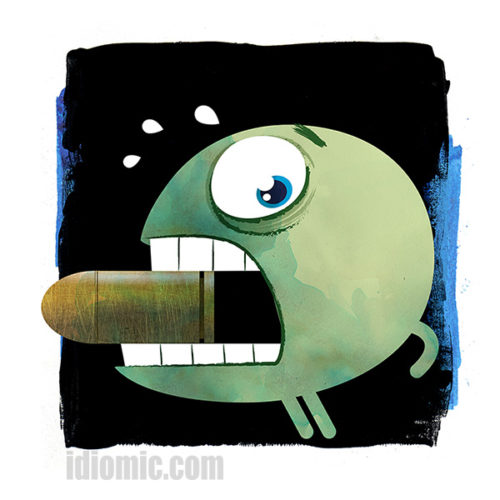
If the analysis comes out right, I’ll “bite the bullet” and do the thing. If there’s a thing I want and something in the way, then it’s a pretty standard (though frequently subconscious) cost-benefit analysis based on how much I want the thing and how much pain or work is in the way. In life, a policy for biting bullets is probably useful, and I’m sure there’s an important post to be written there, but at least personally I don’t feel the lack of policy too painfully. One way to deal with this apparently appalling rule is to “bite the bullet” accept and actually argue that we should kill people for their organs.īringing this back to policy-level decision-making: I realized recently that I don’t have a policy for biting bullets, in philosophy or in life. Really basic utilitarianism suggests this is a moral necessity, because five lives are more valuable than one life. If you think that simple utilitarianism is the correct ethical theory, then you have to deal with the transplant problem, where you have the option to kill one random healthy person and use their organs to save five others. Want to swim in the ocean, but it’s the middle of winter? You’re going to have to “bite the bullet” and get in even though the water will be freezing cold.īiting the bullet in philosophy is analogous it means to accept weird, unpleasant, and frequently counter-intuitive implications of a theory or argument because the theory or argument is otherwise valuable or believed to be true. Biting the bullet in life is to accept and then do something painful or unpleasant because you don’t think you have any better alternatives to get the thing you want. There is a peculiar manoeuvre in philosophy, as in life, called “biting the bullet”.

It’s obviously more work to come up with a policy than to just make the decision in the moment, but for those cases when you feel torn between the two basic perspectives, policy-level decision-making seems like a good way to resolve the tension. Policy-level decision-making is the handbook’s suggested way to thread this needle: hat policy, if I followed it every time I had to make a decision like this, would strike the right balance? How do I want to trade off between follow-through and following my feelings, or between staying safe and seizing rare opportunities?


#Biting the bullet idiom update#
You have to be able to update on new information and Whatever is how people end up halfway through a law degree they neverĪctually wanted. Yourself to do stuff out of some misguided sense of consistency or guilt or Past you was just guessing at what you would want in this moment. Present you has the most information and context Never finish anything that takes sustained effort or motivation or attention.” “Look,” says the second perspective.

Wheel, even when you don’t feel like it anymore, because otherwise you’ll Sometimes, you have to let past you have the steering Hours’ delay is enough to throw you off your game, there’s practically no point You’ve got to be able to keep promises to yourself. If you’re too lazy for that, I’ll summarize with a question: What should you do when you’ve made a plan, and then there’s a delay, and you really don’t want to do the thing you’ve planned anymore? The handbook starts with two basic perspectives: “Look,” says the first perspective. It’s excellent, grounds much of this post, and comes with some classic Calvin & Hobbes comics I recommend it. The CFAR Handbook has a really interesting chapter on policy-level decision-making (pages 170-173).


 0 kommentar(er)
0 kommentar(er)
